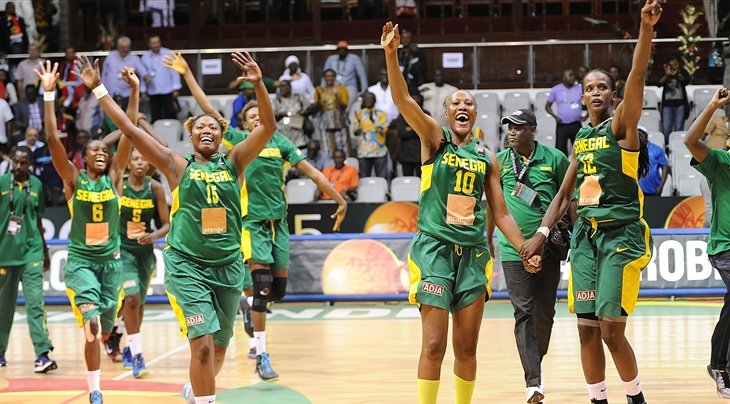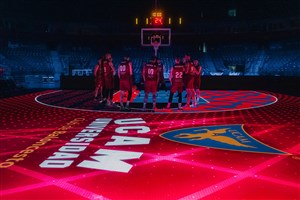
Better team at AfroBasket Women 2015?
SHEFFIELD (Julio Chitunda's African Message) - Watching Senegal's struggles early at AfroBasket Women 2015, few would predict they would be able to turn things around later in the competition to become the deserving winners of the tournament held in Yaounde, Cameroon.
However, were Senegal the better team in the tournament in which all teams recorded at least one loss? Answer: yes and no.
Senegal were the better because they stepped up when it mattered most.
Losing to title contenders Angola and Nigeria in the Group Phase had a positive effect for the Senegalese, who closed out the tournament with four wins in a row to clinch their 11th African title.
In a turn of events, Senegal outplayed hosts Cameroon as well as then reigning champions Angola in their last two final games of the tournament, changing the general picture of Moustapha Gaye's team which seemed somehow inconsistent in the Group Phase.
If Senegal's campaign was to be defined by their performance in the Final, in which they dominated Cameroon 81-65 in front of a sellout crowd at Yaounde Multipurpose Sports Complex, then, yes they were the better side.
Senegal led for all but 49 seconds and were up by as many as 20 points. No other team gave Cameroon so much trouble in the tournament. Most important of all, the Senegalese played their best defensive game of the entire tournament.
But if statistics are anything to go by, then Nigeria were the better team in the competition.

Nigeria (NGR)
The Nigerians, who sought their first continental title since 2005, scored more points per game (76) than any other team, they averaged tournament-highs (48.9 rebounds and 17 assists per game) and recorded the highest efficiency rate of 81.9.
But, unlike Senegal, Scott Nnaji's team paid the price for allowing Cameroon to come back in the Semi-Final after leading for most of the contest, and that breakdown proved costly.
Nigeria lost 71-70 against the tournament hosts, but bounced back, beating Angola in the Third-Place Game, and as result clinched the last spot for next year's FIBA Women's Olympic Qualifying Tournament (WOQT).
Nnaji said: "In terms of the quality of the teams, Nigeria were clearly the best team at the AfroBasket [Women] this year but unfortunately we didn't win it.
"The process leading to the AfroBasket affected us. We went from the All-Africa Games which was very strenuous, from where we played to where we ate. Everybody was stressed out.
"The same thing affected Mali. Some of their players had injuries. We were the only ones that played the All-Africa Games to the end and still did well at the AfroBasket.
"Senegal didn't get to where we got to at the All-Africa Games," Nnaji said.
Back in 2013, Cameroon indicated they could compete with any team and become a continental household in years to come.

Cameroon (CMR)
They opened their AfroBasket Women 2015 with seven straight wins, but failing in the most important game of their basketball history raised some unanswered questions.
But, if Alain Zedong's team is given the means and opportunity to continue its evolvement at continental level, and playing the way they did in Yaounde, Cameroon could become a realistic contender.
It remains to be seen what legacy - if any - the tournament can bring to Cameroon women's basketball.

Angola (ANG)
As for Angola, who sought to become the first African team to win three continental titles in the last three decades, finishing fourth turned out to be a big disappointment. This time around Angola moved the ball exceptionally well, but making only 32.4 percent of their field-goal shooting outmatched their title ambitions.
With the FIBA Africa Ranking Women updated last week, Cameroon and Guinea registered the highest growth, climbing eight places each, while the top three places remained unchanged with Angola, Mali and Senegal leading the continental chart.
Julio Chitunda
FIBA
FIBA's columnists write on a wide range of topics relating to basketball that are of interest to them. The opinions they express are their own and in no way reflect those of FIBA.
FIBA takes no responsibility and gives no guarantees, warranties or representations, implied or otherwise, for the content or accuracy of the content and opinion expressed in the above article.





















